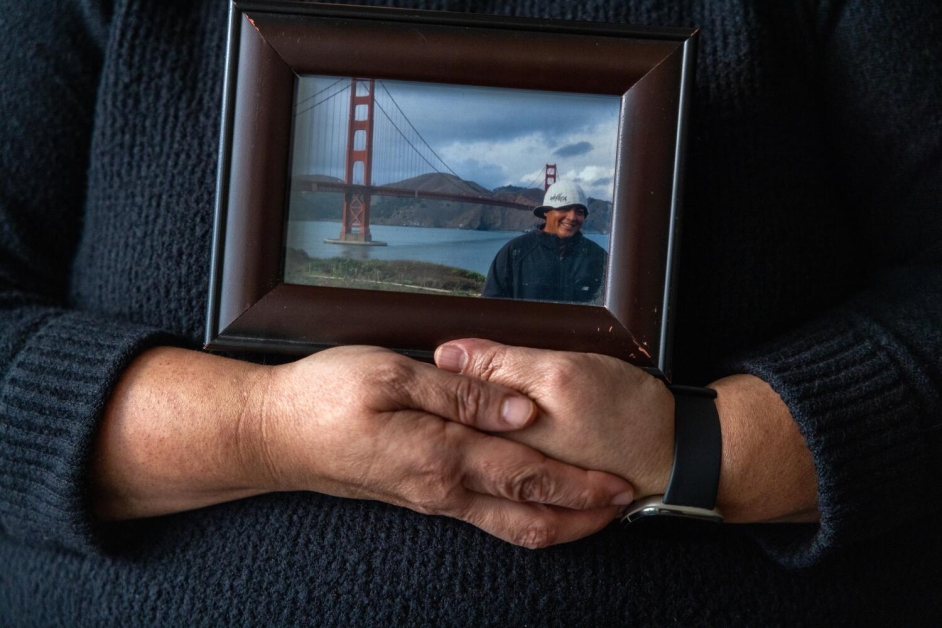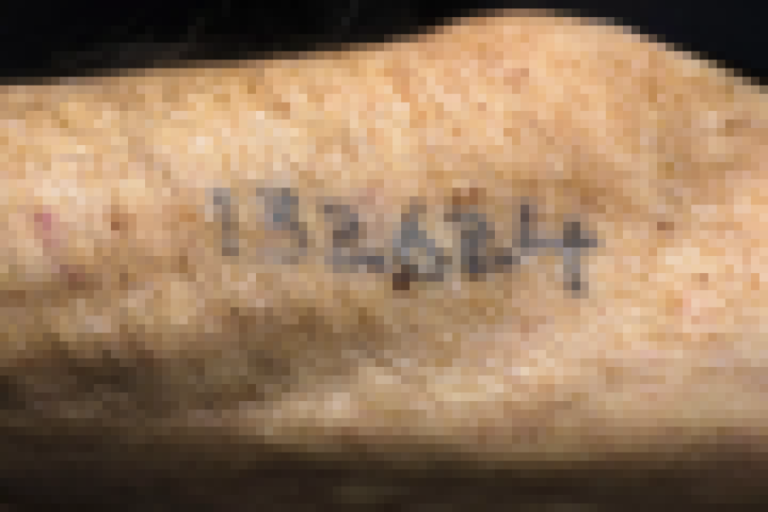Supreme Court justices sounded skeptical Tuesday about siding with a Los Angeles woman who claimed her constitutional rights were violated when the government denied a visa to her Salvadoran husband, in part over his tattoos.
While some justices said they agreed that denial of a visa to a U.S. citizen’s spouse could in theory infringe on the citizen’s constitutionally protected interests, a majority suggested the government had fulfilled its legal responsibilities in this case.
Former resident Luis Asencio Cordero, who is from El Salvador, has been separated from his wife, L.A. civil rights attorney Sandra Muñoz, since 2015.
The couple sued, arguing the federal government had violated her rights to marriage and due process by failing to provide a timely explanation for denying his visa.
Initially, the government said it denied the visa due to concerns that Asencio Cordero would be likely to engage in unlawful activity if he were allowed back into the U.S.
Later, the couple learned through their lawsuit that the government believed he was an MS-13 gang member, based on his tattoos as well as an interview and background check.
Asencio Cordero denies that his tattoos — which depict the comedy and tragedy theater masks, La Virgen de Guadalupe and a tribal design with a paw print — are affiliated with a gang. A court-approved gang expert concurred.
The Biden administration is asking the Supreme Court to reverse a 9th Circuit Court of Appeals ruling in favor of the couple.
Administration lawyers have argued that because Muñoz and Asencio Cordero could choose to live outside the U.S., her right to marriage has not been violated. The administration also argued that immigration officials have broad discretion when deciding whom to admit into the country.
Administration lawyers also said that requiring the government to disclose specific details about the evidence and intelligence used in such decisions would slow processing, pose a risk to public safety and could chill future information-sharing with foreign partners.
A long-established judicial doctrine prevents court reviews of visa determinations except in limited cases.
Curtis Gannon, a Biden administration attorney, said Muñoz was affected “only indirectly” by the government’s actions.
“Muñoz cannot challenge the denial of her husband’s visa application any more than she could challenge a decision at the end of a removal proceeding that he will be removed from the United States, or at the end of a criminal trial that he would be sent to a prison far across the country,” Gannon told the justices.
Liberal Justice Sonia Sotomayor cited the long history of cases establishing the right to marriage. Assuming Muñoz is entitled to protection of that right, she said, the question is what kind of process is enough.
“Here you’re saying she’s entitled to nothing,” Sotomayor said to Gannon. “Why do we have to go that far?”
Sotomayor and fellow liberal Justice Elena Kagan suggested the government’s initial explanation for the denial was too vague.
“How does a citation to unlawful activity tell anybody anything?” Sotomayor asked.
Other justices appeared to agree that the government had provided sufficient explanation as currently required under the law, and that State Department decisions on visas should not be second-guessed by judges.
Justice Neil M. Gorsuch and Chief Justice John G. Roberts Jr., both conservatives, questioned what additional information or explanation should be required of the government if the case were to be sent back to lower courts for further review, as the couple is seeking.
“Why are we here?” Gorsuch asked. “I’m not sure what the cause of action here is.”
Conservative Justice Amy Cony Barrett said case law doesn’t require the government to explain more than it already has about the visa denial.
“I guess I don’t see why Justice Gorsuch isn’t right, that this is just game over,” she said.
Kagan agreed, questioning why the case was ongoing given that the couple had already gotten what they’d sought: an explanation of the visa denial.
Eric Lee, Muñoz’s attorney, said the couple want to file a new visa application with evidence refuting the MS-13 membership allegation — with assurance that the federal government will review it.
A request for reconsideration is limited to one year after a visa denial. Because Asencio Cordero didn’t know why he had been denied, Lee argued, the couple missed the opportunity to prove the government wrong. Had they known the government believed he was an MS-13 member, the affidavit they later submitted by a gang expert could have been specifically tailored to explain why his tattoos weren’t consistent with the notorious gang.
“It doesn’t give us any guarantee, but that’s what due process requires,” Lee said.
Roberts and fellow conservative Justice Samuel A. Alito Jr. suggested that Lee’s arguments on behalf of the couple appeared contrary to the federal government’s right to control who enters the U.S.
“How do you weigh the liberty interests that you are asserting against the government’s interest in denying visas to people who would present a danger when they get to the United States?” Alito asked.
“I don’t see how you can avoid the conclusion that that involves weighing what I, at least, see as totally disparate and perhaps unweighable interests,” Roberts added.
Lee replied that consular officers have heavy caseloads, “and what we’re asking for is for them to give us enough information to help them make a decision.”
If the court sides with Muñoz, other families could be entitled to some explanation when they are denied visas.
But immigrant advocates worry the court’s conservative majority could instead strengthen consular officers’ broad powers.



